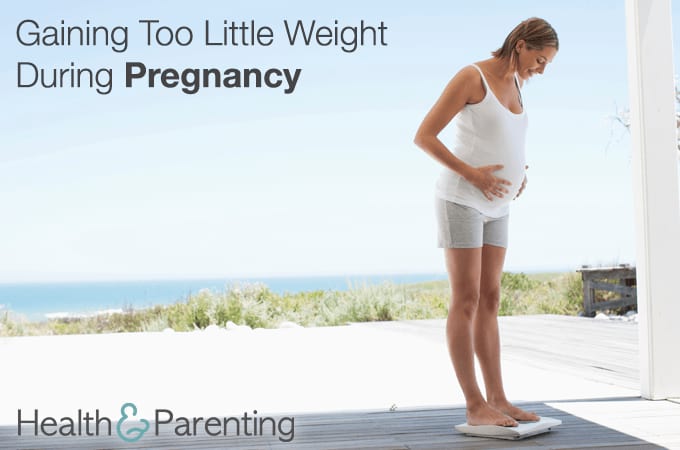It is important to gain weight during pregnancy. Not only are you housing a developing baby, but also a brand new organ (the placenta), 50% more blood than usual, some amniotic fluid, and a few extra pounds to keep your baby sustained during breastfeeding. You may worry you are gaining too little weight during pregnancy, and be looking for ways to pile on the pounds.
How much weight should I put on during pregnancy?
This depends on your pre-pregnancy weight, and is calculated using your BMI. If you don’t know your pre-pregnancy BMI, your healthcare provider will calculate one for you at your first appointment. If your BMI is:
- 18.4 or less – you are considered to be underweight, and should aim to put on between 28 and 40 lbs by the end of the pregnancy
- 18.5 – 24.9 – you’re in the healthy range and should aim to put on between 25 and 35 lbs by the end of the pregnancy
- 25 or over – you are considered to be overweight, and should aim to put on between 11 and 20 lbs during pregnancy
Your healthcare provider is best placed to offer you advice about weight gain, and will consider your full medical history when giving advice.
Gaining too little weight during pregnancy
There are many reasons why some women find it difficult to put weight on during pregnancy, including:
- sickness and nausea – extreme morning sickness and nausea can actually cause some women to gain weight. If you are finding it difficult to keep food down, speak to your healthcare provider for advice. Make sure you stay hydrated, continue to take your daily prenatal vitamin, and try to eat when you feel you can.
- metabolism – you may find that your body is simply too efficient at burning fat.
- body image issues – if you suffer from food-related body image issues, you may find the idea of putting weight on during pregnancy upsetting. In fact, you may find yourself avoiding putting weight on for this reason. You may require support to deal with this during pregnancy, so speak to your healthcare provider immediately.
How to increase weight gain
To increase your weight gain, you could try:
- eating more food – it could simply be that you’re not eating enough, so try eating more of the foods you enjoy. Remember, you should be eating a healthy, balanced diet during pregnancy, so keep choosing fresh foods and vegetables. Make sure you snack between meal times, and eat whenever you feel hungry.
- eat more fatty foods – avocados, nuts and coconut oil are all healthy fatty foods. Increase the amount of these foods in your diet, and you may find it becomes easier to gain a few pounds, without eating unhealthy processed foods. Cooking with coconut oil, eating peanut butter on toast before bed, and having an avocado as your mid-morning snack are all tasty and healthy ways to increase the fat in your diet.
- slow down – don’t stop exercising altogether, but if you’re a bit of a gym bunny, you may need to cut back a bit. Staying fit and active during pregnancy is important, and there are lots of benefits to exercise during pregnancy, but you also need to make sure you are able to gain weight. Keep exercising, but reduce the frequency, duration or intensity of your workout.
When to seek help
Your healthcare provider wants to support you through pregnancy, and this includes offering advice and support about weight gain. If you are worried that you haven’t gained enough weight, talk to your healthcare provider who will be able to offer tailored advice to help you gain weight. Gaining too little weight during pregnancy can increase the chances of pregnancy complications, low birth weight and, perhaps surprisingly, childhood obesity, so it is important to seek help early.
Are you struggling with weight gain this pregnancy?
Written by Fiona, proud owner of a toddler, @fiona_peacock
This information is not intended to replace the advice of a trained medical doctor. Health & Parenting Ltd disclaims any liability for the decisions you make based on this information, which is provided to you on a general information basis only and not as a substitute for personalized medical advice. All contents copyright © Health & Parenting Ltd 2018. All rights reserved.










